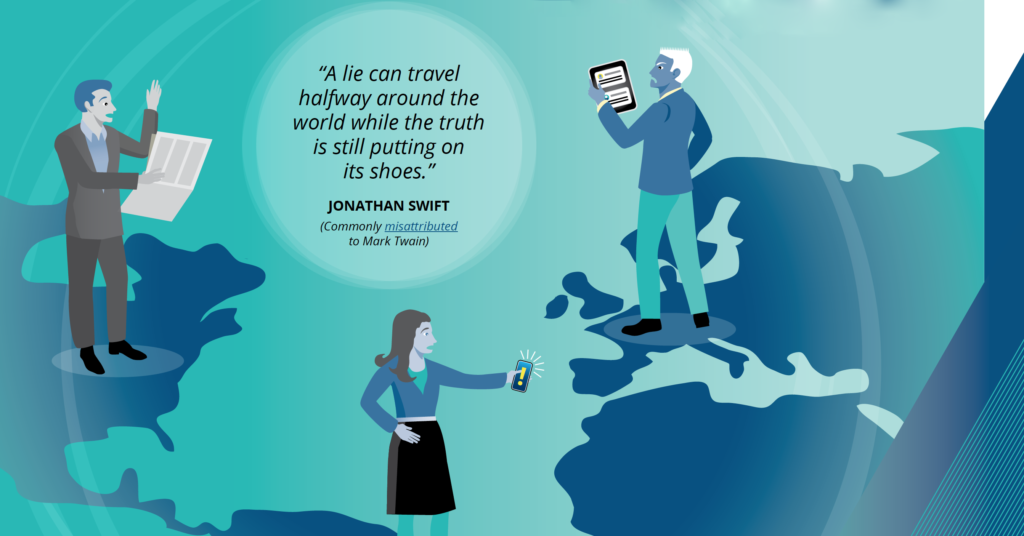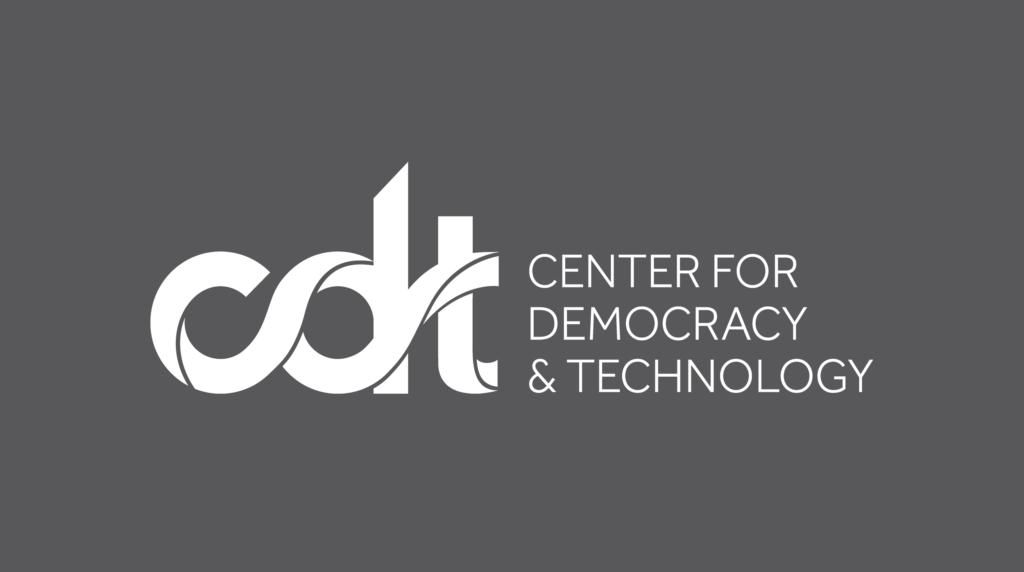CDT Research, Cybersecurity & Standards, Elections & Democracy, European Policy
A Lie Can Travel: Election Disinformation in the United States, Brazil, and France (CDT report published by KAS)

Executive Summary
In 2016, Russian hackers released hacked emails from Democratic officials, rocking the U.S. presidential election. In 2017, a similar hack-and-leak operation released thousands of documents on Emmanuel Macron, just hours before the start of the French election period media blackout. In 2018, while Brazilians were voting for president, Jair Bolsonaro’s son circulated a misleading video that falsely implied that voting machines were converting votes from Bolsonaro to his rival. The day after the 2020 U.S. presidential election, driven by false claims about felt-tip markers (“Sharpies”) used to mark ballots, protesters descended on an election office in Arizona waving markers—and guns.
Around the world, election disinformation—false or misleading information about electoral processes, election outcomes, political parties, political candidates, and the perceived legitimacy of election officials—appears to be taking hold.
In many countries people are dissatisfied with how democracy is working. Less than half of people in the U.S., Brazil, and France report having confidence in their national government. And less than half believe that votes in their countries are counted fairly “very often.” (In Brazil, that number has dropped from 21% in 2014 to just 14% in 2018.)
Low levels of trust in democracy and in government can create a vicious cycle when combined with election disinformation. For example, low trust may increase receptiveness to election disinformation, which in turn may further reduce trust in democracy. Research to understand this problem, particularly in an international context, is still nascent. This report examines case studies of election disinformation—and interventions aimed at combating disinformation—in the U.S., Brazil, and France.
Election disinformation spreads through a multitude of channels: through online or traditional media; from members of the public or from powerful leaders. However, recent events in the U.S., Brazil, and France suggest that the role of government officials and candidates can have an outsized impact. For example, election disinformation has been widespread in the U.S. and Brazil, but has remained relatively peripheral and unimpactful in France. This research suggests that this is likely due to American and Brazilian politicians (President Trump, President Bolsonaro, and their allies) using social media and other platforms to sow distrust about their respective countries’ electoral systems. Further, our research indicates that Presidents Trump and Bolsonaro have each conflated potential vulnerabilities in electoral systems with actual evidence of fraud, fomenting distrust and anger. No court found evidence of widespread fraud in the 2020 U.S. election—however, some Republican politicians continue to promote the falsehood that the election was rigged against Trump.
Another factor to consider is the degree of centralization in the administration of elections. Elections in Brazil and France are executed by relatively strong central authorities with relatively uniform roles. In the U.S., authority to set rules and execute elections is divided among Congress, the states, and the localities. The decentralized nature of the U.S. election system means that there is no simple way to describe how elections are administered across the country, creating knowledge gaps and uncertainty that disinformation-peddlers can leverage.
The unique vulnerabilities present in institutions within a country’s electoral system and the ways that they are exploited may also help explain the spread of election disinformation. In 2016 and 2017, respectively, the U.S. and France elections were interfered with via hack-and-leak operations. In the U.S., Russia targeted Hillary Clinton and the Democratic party. In 2017, the target was Emmanuel Macron’s presidential campaign. While the 2016 U.S. interference operation had a major impact, the 2017 French operation is generally thought to have had a minimal impact.
We have seen some similarities in attempts to mitigate disinformation in each country:
- Governments took steps to combat disinformation by fact-checking narratives as they emerged. For example, in the wake of the 2020 U.S. presidential election, the Cybersecurity and Infrastructure Security Agency created the Rumor Control page to debunk disinformation as it happened. In Brazil, the Superior Electoral Court (TSE) fact-checked disinformation leading up to and on recent election days. Before each presidential election, France establishes the National Commission for the Control of the Electoral Campaign for the Presidential Election (CNCCEP) to monitor and intervene against disinformation.
- Governmental efforts to debunk or “pre-bunk” disinformation are not always effective, in part because government agencies do not always have strong communications capabilities or a habit of communicating effectively with the public. But they often provide an important authoritative source for journalists to use in their own stories responding to disinformation. This may be tempered by the fact that trust in the media and government is low in all three countries.
- While governments can play an important role, they can also overstep. Legislatures in all three countries have proposed interventions that in some cases are extremely overbroad, to the extent that they may be incompatible with upholding international standards of free expression. These proposals have created pushback from advocacy groups and other members of civil society. In general, we found that no comprehensive legislative effort to regulate disinformation has been passed, upheld, applied regularly, and been consistent with international standards of free expression.
- In recent years, social media platforms have all initiated efforts to limit the spread of disinformation, through some combination of fact-checking and labeling content, taking down content, or limiting the virality of forwarded messages. More research and transparency is needed to determine the effectiveness of these measures.
- Some of the most promising methods for fighting disinformation involve collaborations between governments, academics, social media platforms, journalists, election officials, and civil society, to monitor and mitigate election disinformation.
Our review points to several lessons about addressing the problem of election disinformation:
- Governments ought to fulfill their obligations to respect human rights when considering legislation aimed at addressing disinformation.
- The contrast between the impact of disinformation in the United States and Brazil versus France suggests that the role of government officials is significant. Government officials ought to commit to not traffic in disinformation and to take seriously their role in countering objectively false information about voting processes.
- Social media companies should be more transparent about their efforts to combat election disinformation, and about the effectiveness of those efforts. They should also be more transparent about how platform ranking and amplification algorithms affect the spread of election disinformation.
- Social media platforms should increase researcher access to data, in order to support independent research by academics, journalists, government, and civil society.
- More research should be done on how to build effective whole-of-society approaches that coordinate governments, civil society, traditional media, social media, and end users.


